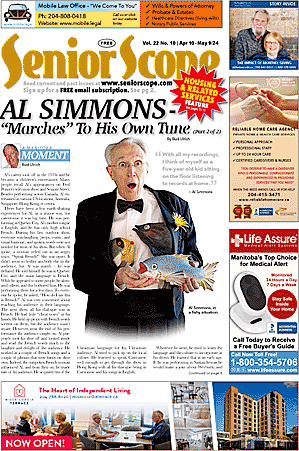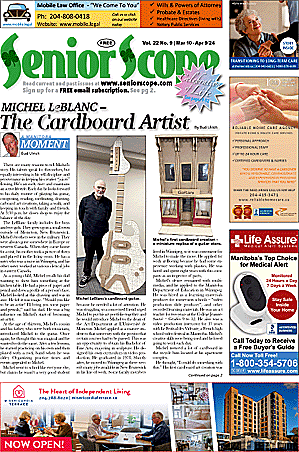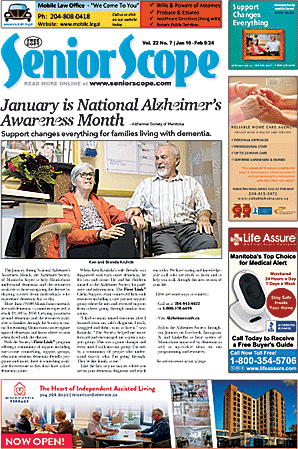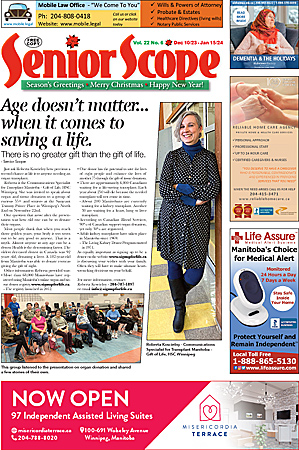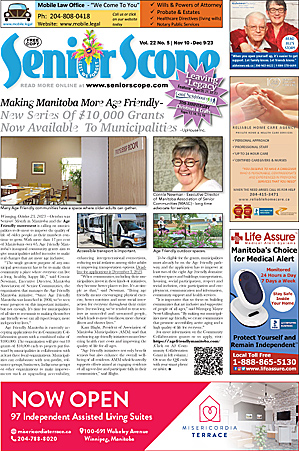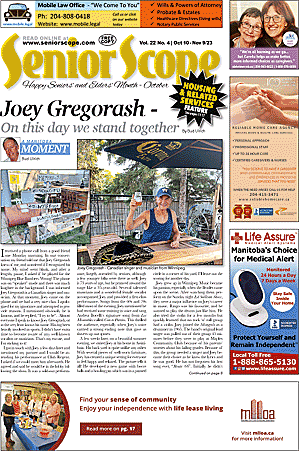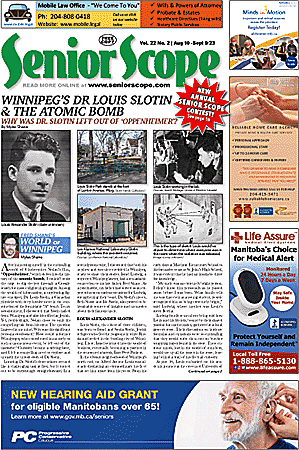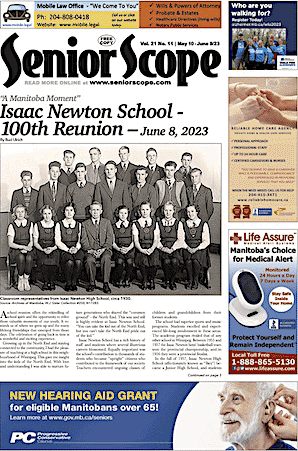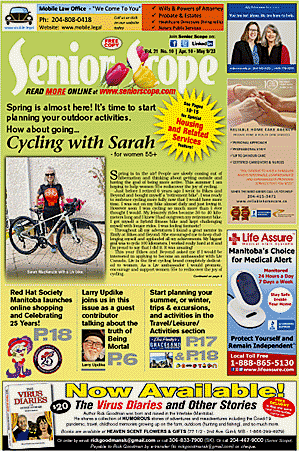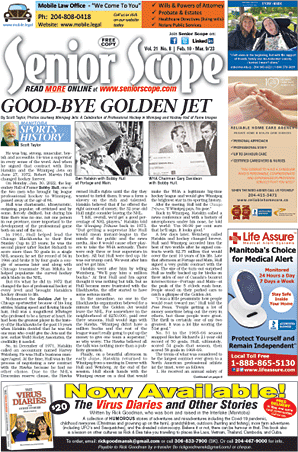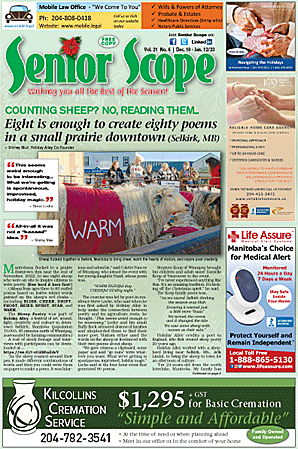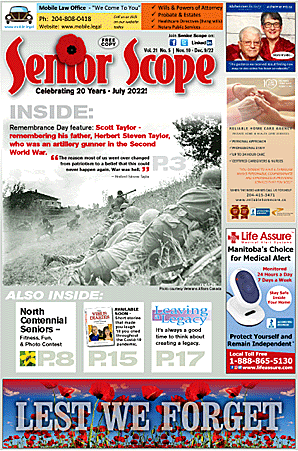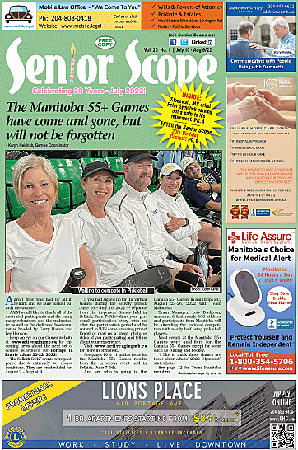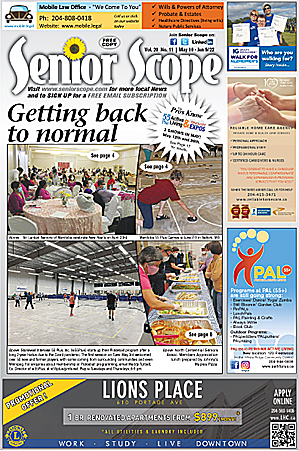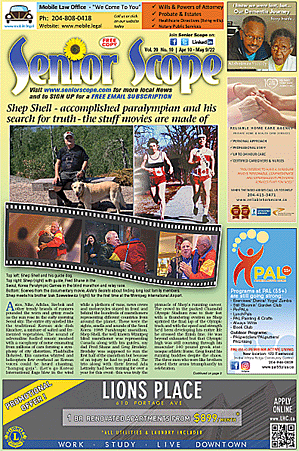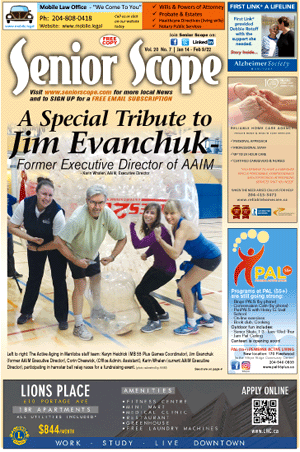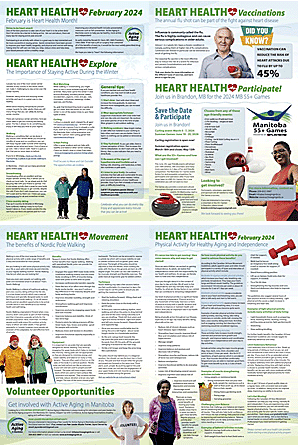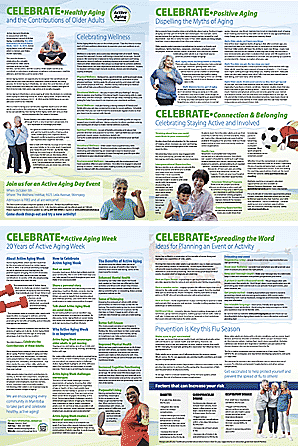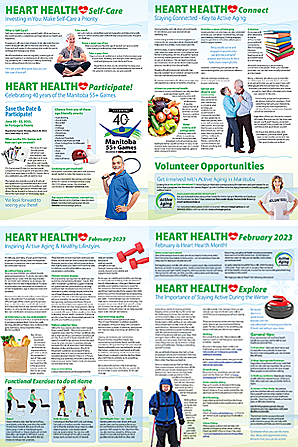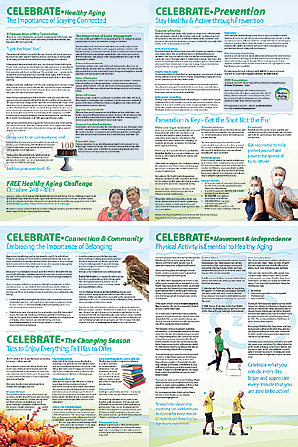
Click
for website.
NATIONAL
VOLUNTEER WEEK - APRIL 14-20, 2024. EVERY MOMENT MATTERS.
Visit
www.volunteer.ca for more information.
 |
MANITOBA
55+ GAMES - JUNE 18-20/24 BRANDON, MB |
 |
Sign
up for a FREE email subscription to Senior
Scope.
Receive every issue automatically in your email inbox each month.
Click
to e-Subscribe. Type: 'Sign Me Up' in the Subject line.


Read
the Mar 10 - Apr 9/24 issue Read
the Feb 10 - Mar 9/24 issue Read
the Jan 16 - Feb 9/24 issue Read
the Dec 10/23 - Jan 15/24 issue Read
the Nov 10 - Dec 9/23 issue Read
the Oct 10 - Nov 9/23 issue Read
the Sep 10 - Oct 9/23 issue Read
the Aug 10 - Sep 9/23 issue Read
the July 10 - Aug 9/23 issue Read
the June 10 - July 9/23 issue
Read the Apr 10 - May 9/23 issue Read
the Mar 10 - Apr 9/23 issue Read
the Feb 10 - Mar 9/23 issue Read
the Jan 13 - Feb 9/23 issue Read
the Dec 10 - Jan 12/23 issue Read
the Nov 10 - Dec 9/22 issue
Read the Oct 10 - Nov 9/22 issue Read
the Sept 10 - Oct 9/22 issue Read
the Aug 10 - Sept 9/22 issue Read
the July 10 - Aug 9/22 issue Read
the June 10 - July 9/22 issue Read
the May 10 - June 9/22 issue Read
the Apr 10 - May 9/22 issue Read
the Mar 10 - Apr 9/22 issue Read
the Feb 10 - Mar 9/22 issue Read
the Jan 14 - Feb 9/22 issue CLICK
FOR PAST ISSUES OF SENIOR SCOPE
Click on each page to view a larger image. Click to view these pages in the February 10/24 issue of Senior Scope. (pages 11-14).
Click to view a larger image in pdf. Click to view these pages in the September 10/23 issue of Senior Scope. (pages 11-14).
Click on each page to view a larger image. Click to view these pages in the February 10/23 issue of Senior Scope. (pages 9-12). Click to view a larger image in pdf. Click to view these pages in the October 10/22 issue of Senior Scope. (pages 13-16).
|


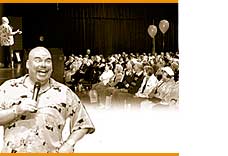


Photos (above):
Top: Students make greeting cards for the Be a Santa to a Senior Program.
Middle: Comedian Big Daddy Tazz entertains at the Seniors' and Elders' Day Celebration.
Bottom: Tom (Oldguy) Kyle, co-founder of M.U.G.S. (Macintosh User Group For Seniors).
Senior
Scope
Publisher: Kelly Goodman
Phone: 204-467-9000
Box 1806 Stonewall
Manitoba, Canada
R0C 2Z0
Email: kelly_goodman@shaw.ca



